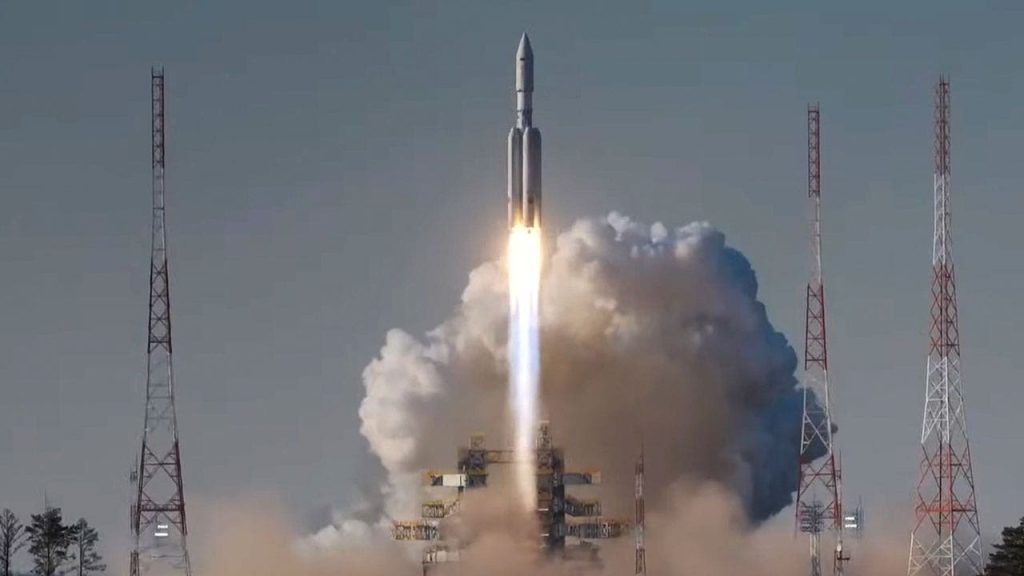Russia successfully test-launched a new heavy-lift rocket from its Far Eastern space complex on Thursday, after two aborted attempts earlier in the week. The first attempt on Tuesday was canceled due to a failure in the oxidizer tank pressurization system, while the second attempt on Wednesday was aborted by the automatic safety system due to a flaw in the engine start control mechanism. The failure was likely due to a programming error. The successful launch on Thursday marked the fourth for the Angara-A5, a heavy-lift version of the new Angara family of rockets developed to replace the Soviet-designed Proton rockets.
The Angara-A5 rocket is intended to be the main launch vehicle for Russia’s prospective lunar research program. The development of the rocket, like the construction of the Vostochny spaceport, has faced delays and setbacks. Since the breakup of the Soviet Union in 1991, Russia has leased the Baikonur Cosmodrome from Kazakhstan for its space launches, with an agreement allowing Russia to continue leasing it through 2050 for $115 million per year. Despite this, Russian authorities have developed Vostochny as the preferred facility for Angara launches, although it has seen limited use so far.
After three successful launches from the Plesetsk launchpad in northwestern Russia, the Angara-A5 was successfully launched from the Vostochny spaceport on Thursday. The rocket is designed to launch intelligence and communication satellites to geostationary orbits, similar to the Soviet-designed Proton rocket it is intended to replace. The success of the launch on Thursday represents a significant milestone in the development of the Angara-A5 rocket and the Vostochny spaceport.
The Angara-A5 rocket is part of the new Angara family of rockets developed by Russia to replace the Soviet-designed Proton rockets. The new rocket is crucial for Russia’s lunar research program and is intended to launch intelligence and communication satellites to geostationary orbits. Despite facing delays and setbacks in its development, the successful test launch on Thursday marks a significant achievement for Russia’s space program. The launch also highlights the importance of the Vostochny spaceport as a facility for future Angara launches, despite facing challenges in its construction and limited use.
The successful test launch of the Angara-A5 rocket from the Vostochny spaceport on Thursday is a significant milestone for Russia’s space program. The rocket is part of the new Angara family of rockets developed to replace the Soviet-designed Proton rockets and is crucial for Russia’s prospective lunar research program. Despite facing delays and setbacks in development, the successful launch demonstrates Russia’s continued commitment to advancing its space capabilities. The launch also highlights the importance of the Vostochny spaceport as the facility of choice for future Angara launches, even as construction delays and limited use have posed challenges.
The development and successful test launch of the Angara-A5 rocket from the Vostochny spaceport represent a major achievement for Russia’s space program. The rocket, part of the new Angara family of rockets, is essential for Russia’s lunar research program and is designed to launch intelligence and communication satellites to geostationary orbits. Despite delays and setbacks in its development, the successful launch on Thursday demonstrates Russia’s commitment to advancing its space capabilities. The Vostochny spaceport, although facing challenges in construction and limited use, is crucial for future Angara launches and represents a significant investment in Russia’s space infrastructure.


